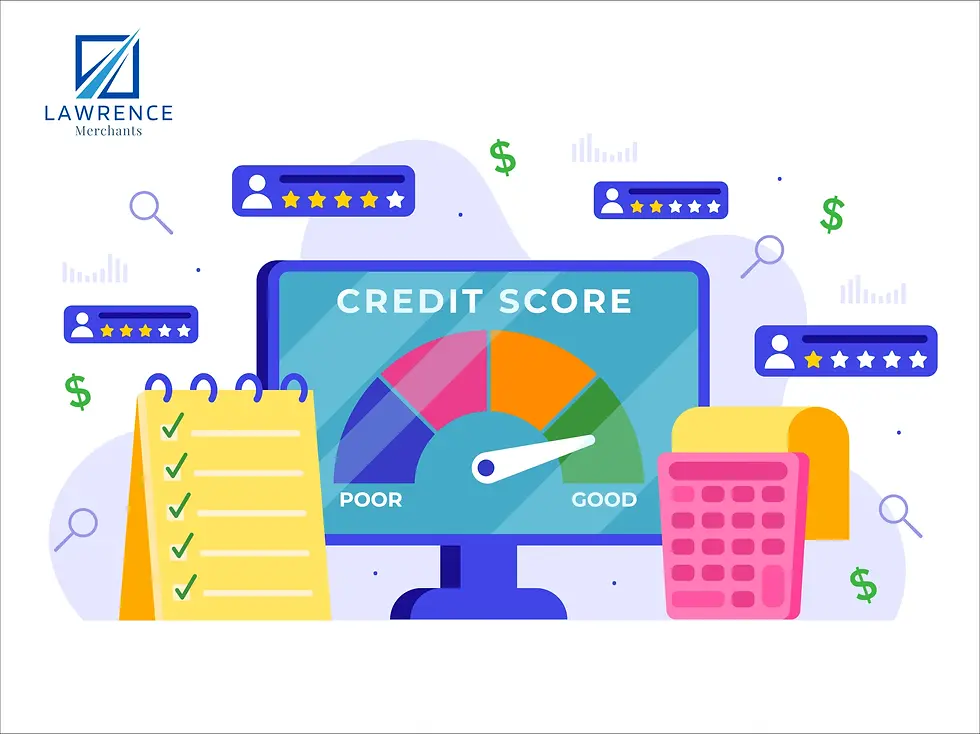Everything You Need to Know About the CIBIL Score 2025 Updates
- Admin

- Jul 2, 2025
- 3 min read

Introduction
The CIBIL score 2025 brings key enhancements aimed at greater transparency, faster updates, and fairer evaluations. As you plan to apply for a loan or credit card, understanding these changes ensures you stay ahead—repairing your credit smartly and confidently.
1. Score Updates Now Every 15 Days
Previously, your credit report refreshed monthly. From 2025 onward, the CIBIL score 2025 will update every 15 days.
Why it matters: Timely EMI payments or error corrections now reflect faster, helping you avoid unnecessary loan delays.
2. Mandatory Disclosure of Loan Rejections
Under the CIBIL score 2025 rules, if a lender rejects your loan or credit card application due to your score, they must clearly state that reason.
Why it matters: You’ll gain precise feedback on what fell short in your profile and have clarity on how to fix it.
3. 30-Day Window to Fix Credit Report Errors
Have you noticed a wrong entry in your report? The CIBIL score 2025 policy gives you a 30-day grace period to dispute and correct the mistake before it negatively impacts your loan application.
Why it matters: A safeguard against unfair credit denials due to clerical errors.
4. Human Review of Credit Applications
Unlike in the past where automated systems could instantly reject a candidate, the CIBIL score 2025 mandates that each rejected application must be reviewed by a person before final denial.
Why it matters: It reduces bias, enabling borrowers with atypical profiles or goodwill repayment histories to receive fair consideration.
5. Credit Inquiry Alerts and Free Annual Reports
The CIBIL score 2025 framework now requires:
Instant alerts via SMS or email whenever your credit is accessed
One complimentary annual credit report from each bureau
Why it matters: Better fraud detection and more convenient access to your credit history.
Why CIBIL Score Rules Were Updated
a) Growing Volume of Credit Use
With credit cards, personal loans, and buy-now-pay-later services on the rise, the scoring model now includes up to 36 months of history instead of 24.
b) Surge in Digital Lending
New lenders need a model that fairly scores customers with as little as six months of credit activity.
c) Alignment with Global Standards
Modern ML-driven models now consider factors like credit mix, utilization, and repayment patterns beyond basic timeliness.
d) Rising Financial Literacy
Borrowers demand more clarity about credit decisions; these reforms deliver transparency and control.
How These Changes Impact Borrowers
Change | Benefit to You |
15-day score updates | Quick reflection of improved behaviour |
Mandatory rejection disclosure | Clear direction on what to correct |
30-day dispute window | Prevents errors affecting urgent applications |
Human application review | Greater fairness for unique borrower profiles |
Credit inquiry alerts | Enhanced awareness and fraud prevention |
No immediate penalty for EMI bounce | Grace time to correct a missed payment without instant damage |
Scoring newcomers more fairly | Helps first-time borrowers build credit |
Action Steps for a Stronger Credit Profile
Check your credit report every two weeks and monitor changes
Dispute incorrect records immediately when flagged
Always pay EMIs on time to benefit from faster repayment recognition
Review lender feedback and address specific issues in your report
Stay informed and leverage your rights under CIBIL score 2025
Conclusion
The CIBIL score 2025 introduces major improvements—frequent updates, enhanced transparency, and fair assessment processes. Whether you’re building credit for the first time or recovering from past issues, these reforms give you a supportive framework.
By tracking your score, fixing errors quickly, and following lenders’ feedback, you can navigate the credit system more confidently—unlocking better loan terms, affordable interest rates, and smoother borrowing experiences.




Comments